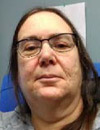Stakeholder engagement is essential for successful transformation to more person-centered practices. Stakeholders—including people with lived experience and their informal support networks, providers, and broader communities—all have invaluable insights that can inform redesign, ensure buy-in, and support implementation. Even so, stakeholder engagement is a stumbling block for many program administrators who are spearheading systems change efforts. This webinar will: 1) examine the common benefits and obstacles to meaningful stakeholder engagement, 2) review a simple framework to guide engagement activities, and 3) provide real-life examples of how this framework can build stakeholder trust and sustainable engagement strategies for success.

Dr. Erin McGaffigan has 22 years of experience in long-term services and supports for older adults and people with diverse disabilities. Her PAE Attention framework, developed as a result of her 2011 dissertation, informs her work with program administrators, researchers, advocates, health plan administrators, and people with lived experience to design and improve stakeholder engagement activities.

Anne Fracht has been advocating for herself and others for years and has received multiple awards for this work. She has worked at Advocates, Inc. as a Self-Advocacy Coordinator since 2009. Ms. Fracht also has sat on many advisory groups to inform program design and improvements, including Boards, Strategic Planning Workgroups, Human Rights committees, and more.

Keith Jones President of SoulTouchin’ Experiences is an African American activist and entrepreneur with cerebral palsy. As a strong advocate for independent quality living in the community, Mr. Jones has participated actively in addressing various issues that people with disabilities face. These areas include housing, education, and voting access.

Bob Weir is currently the Home and Community-Based Policy Analyst for the State of Oregon Department of Human Services Aging and People with Disabilities program. Mr. Weir’s experience includes work for people with developmental disabilities, adolescents in the Oregon State Hospital, and 31 years focused on seniors and people with physical disabilities.
Resources: